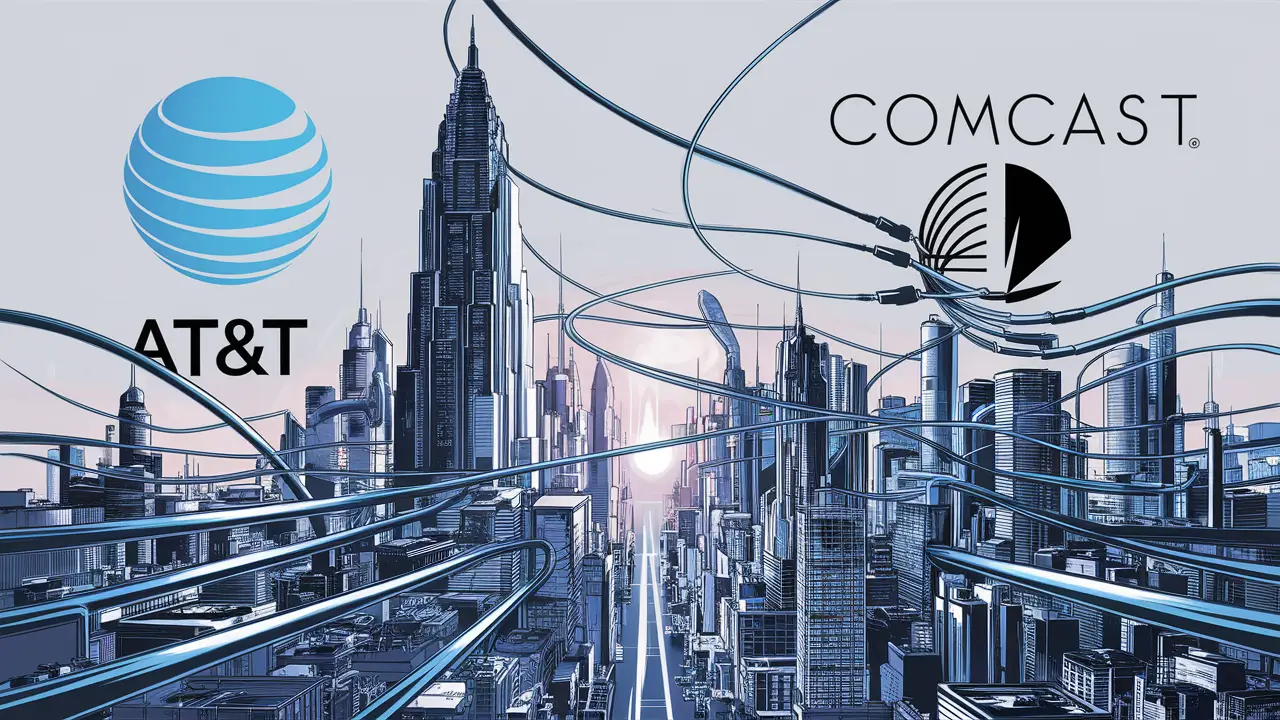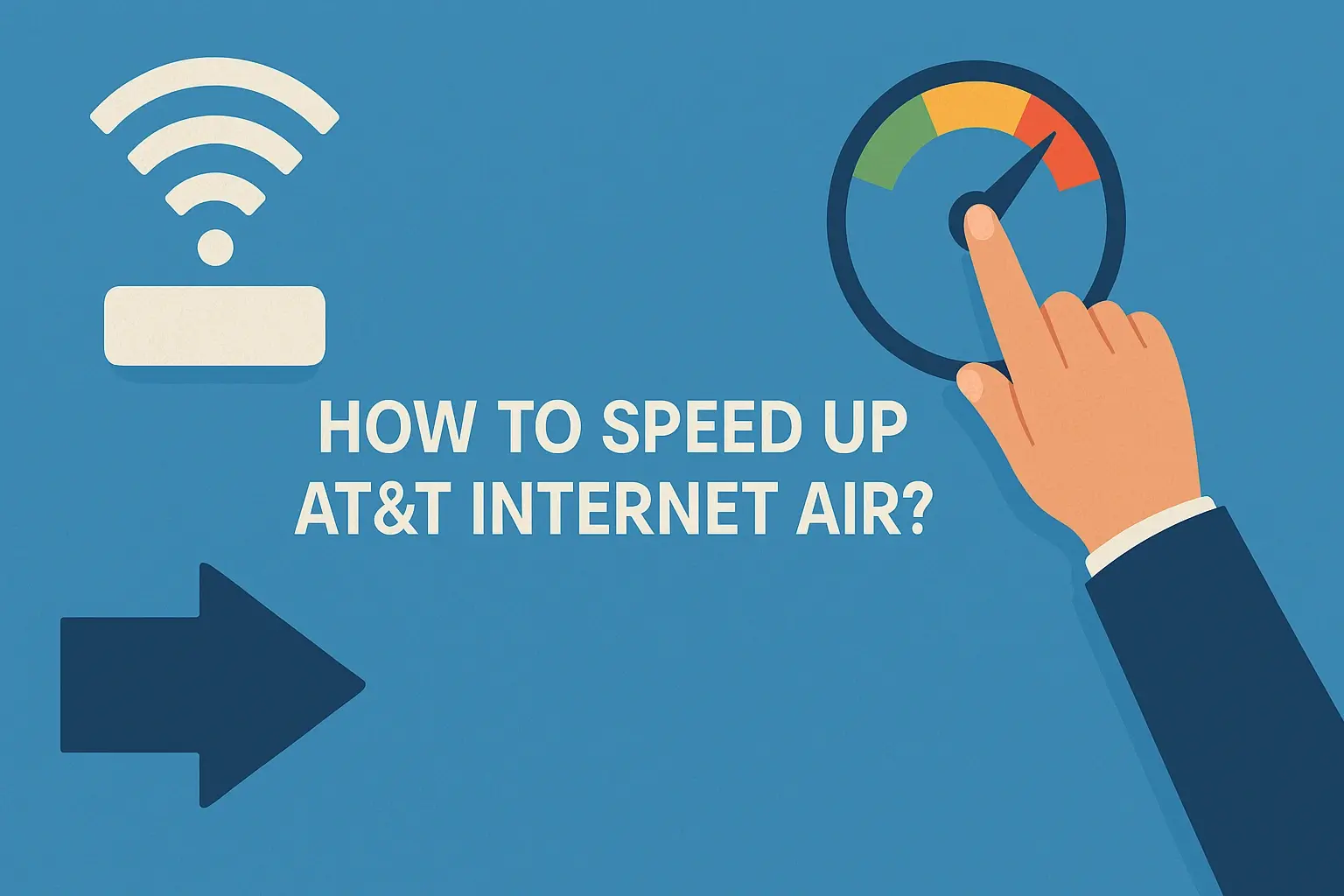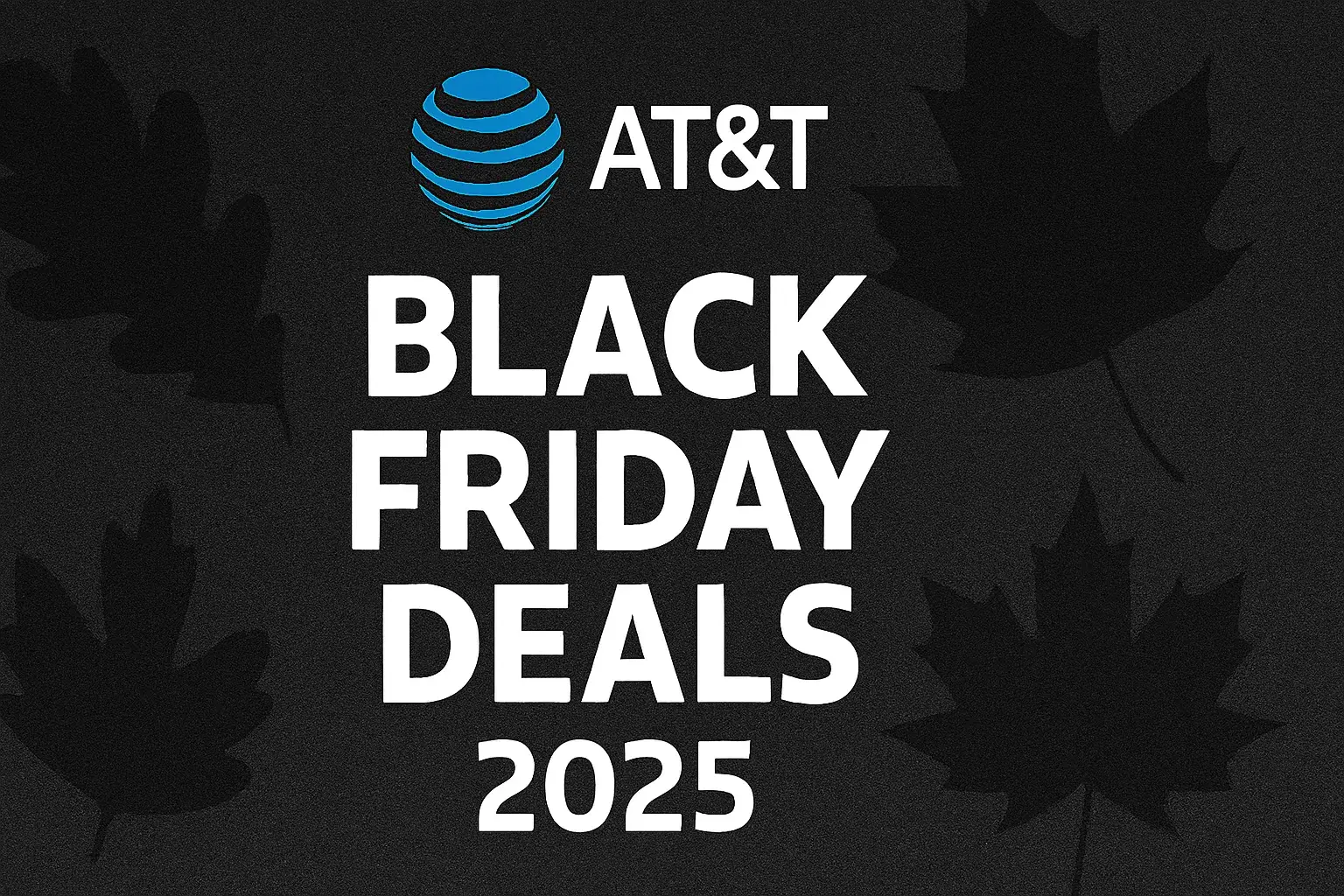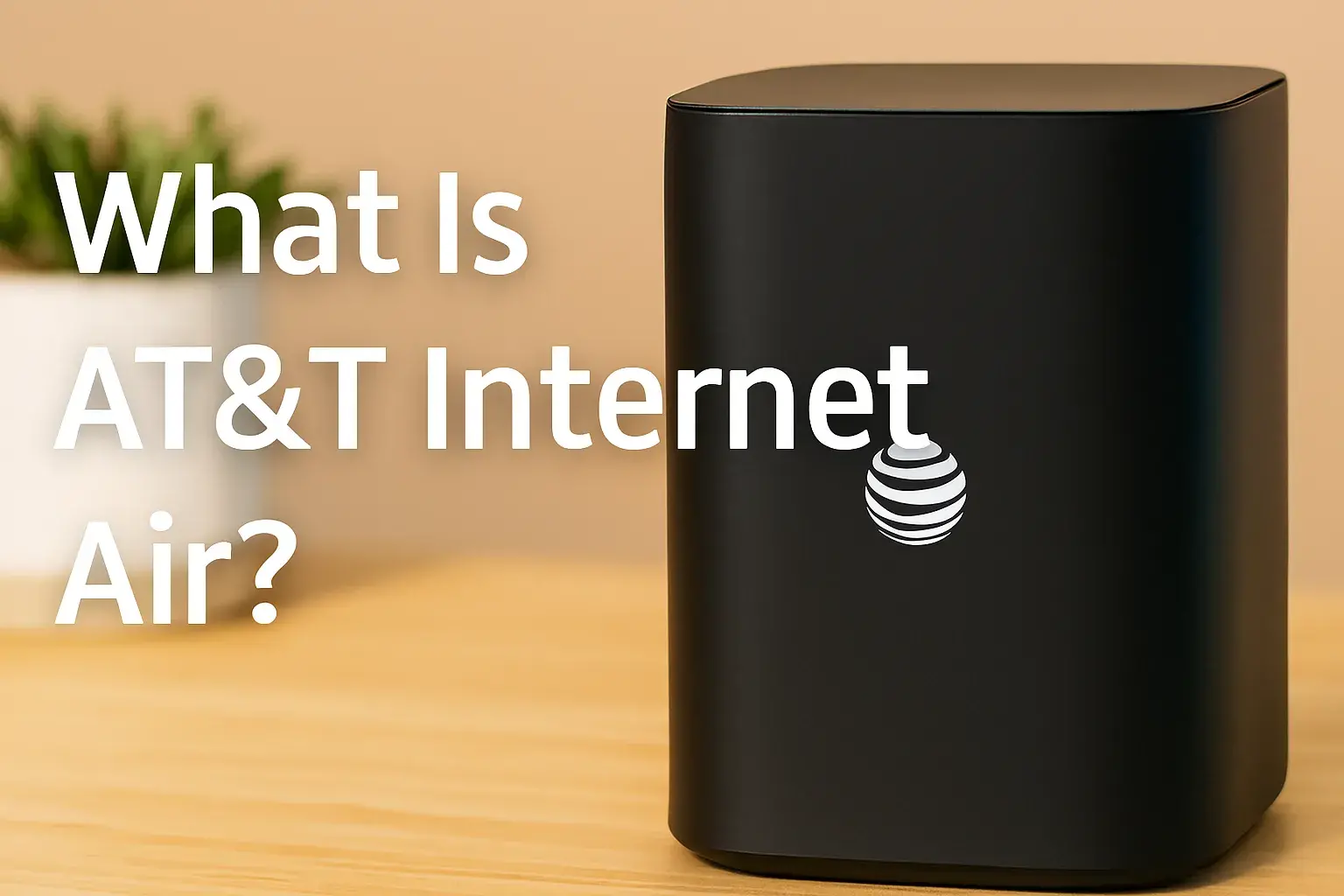Is AT&T owned by Comcast?

You’re trying to set up your new home’s internet, or perhaps you’re reviewing your monthly bills, and a question pops into your head: "Wait, is AT&T owned by Comcast?" Or maybe it’s the other way around? You’re not alone. In the sprawling, complex world of telecommunications and media, where mergers and acquisitions make headlines weekly, it’s incredibly easy to get these corporate behemoths confused.
Both companies deliver internet to your home, offer television services, and are household names across America. Their trucks are familiar sights in neighborhoods, and their logos are plastered on stadiums and commercials. This ubiquity can create a blur, leading many to assume they are part of one colossal conglomerate.
Let’s cut through the noise and provide a definitive answer right at the start: No, AT&T is not now, nor has it ever been, owned by Comcast. They are two entirely separate, independent, and fiercely competitive publicly traded corporations. This article will serve as your definitive guide, diving deep into their histories, their rivalry, the reasons for the common confusion, and what truly sets them apart in the battle for your connectivity and entertainment.
Background of AT&T: The Ma Bell Legacy
To understand the modern telecom landscape, you must first understand AT&T. Its history is not just a corporate timeline; it’s the very foundation of the American telecommunications industry.
A History of Innovation and Antitrust
AT&T’s roots stretch back to 1877, following Alexander Graham Bell’s invention of the telephone. It was incorporated as the American Telephone and Telegraph Company and grew into a monolithic monopoly known as the "Bell System." For most of the 20th century, if you had a telephone in America, it was almost certainly provided by AT&T. This era earned it the enduring nickname "Ma Bell."
This dominance eventually led to a landmark U.S. Department of Justice antitrust lawsuit, resulting in the breakup of the Bell System in 1984. AT&T was forced to divest its local exchange service operations into seven independent Regional Bell Operating Companies (RBOCs), often called "Baby Bells." AT&T remained focused on long-distance services, telecommunications equipment, and R&D.
Modern Services and Ventures
The late 1990s and 2000s saw a wave of consolidation, with AT&T merging with several of its former "Baby Bells." Today, AT&T is a powerhouse in three primary areas:
-
Wireless: Through AT&T Mobility, it is one of the nation's "Big Three" wireless carriers, providing 5G and 4G LTE service to millions of subscribers.
-
Broadband & Fiber: AT&T is a major player in home internet, aggressively expanding its AT&T Fiber network to deliver hyper-fast gigabit internet, competing directly with cable providers.
-
Entertainment (Legacy): While it has recently divested major assets, its 2015 acquisition of satellite TV provider DirecTV made it the largest pay-TV provider overnight (though it has since spun off a controlling interest into a separate entity).
The Media Rollercoaster: HBO, WarnerMedia, and Discovery
AT&T made a colossal move into media with its 2018 acquisition of Time Warner for over $85 billion, renaming it WarnerMedia. This gave it control of prized assets like:
-
HBO and HBO Max
-
Warner Bros. film and television studios
-
CNN
-
TNT, TBS, and other cable networks
However, in a stunning strategic reversal, AT&T merged WarnerMedia with Discovery, Inc. in 2022 to form a new standalone company, Warner Bros. Discovery. This effectively ended AT&T's brief but impactful foray into media conglomerate ownership, allowing it to refocus on its core telecom business.
Background of Comcast: The Cable Contender
If AT&T is the old guard of telecom, Comcast represents the rise of cable. From a single-system cable operator to a global media and technology giant, its growth story is remarkable.
From Humble Beginnings to Cable Dominance
Comcast was founded in 1963 in Tupelo, Mississippi, by Ralph J. Roberts with the purchase of a 1,200-subscriber cable system. The company grew steadily over the decades through strategic acquisitions of other cable providers, eventually becoming the nation's largest cable television provider, multichannel television provider, and largest residential internet service provider.
Its primary consumer-facing brand is Xfinity, under which it markets its internet, TV, mobile, and home security services. The Xfinity brand was introduced to modernize its image and distance itself from the often-negative perceptions associated with the "Comcast" name for customer service.
The NBCUniversal Mega-Deal
Comcast mirrored AT&T’s ambition by making a huge push into content creation. In 2011, after a year of regulatory scrutiny, Comcast acquired a 51% controlling stake in NBCUniversal from General Electric. It later acquired the remaining 49% in 2013.
This transformative acquisition gave Comcast ownership of:
-
A major broadcast network (NBC)
-
A vast portfolio of cable channels (Bravo, USA Network, Syfy, E!, Telemundo, and MSNBC)
-
A legendary film studio (Universal Pictures)
-
Iconic theme parks (Universal Studios Hollywood, Orlando, and Japan)
Expansion into Streaming and Wireless
Comcast hasn't been idle in the streaming era. It launched Peacock, its flagship streaming service, which leverages the vast NBCUniversal library of shows, movies, and live news and sports.
Furthermore, to compete in the wireless sector dominated by AT&T, Verizon, and T-Mobile, Comcast launched Xfinity Mobile as an MVNO (Mobile Virtual Network Operator). It cleverly utilizes Verizon’s cellular network but prioritizes connectivity over its millions of Xfinity Wi-Fi hotspots to provide value and competitive pricing, bundling it with its internet services.
Is AT&T Owned by Comcast? The Clear Answer
Let’s return to the central question and state it unequivocally: No, AT&T is not owned by Comcast.
This is a definitive fact. They are two distinct entities with separate ownership structures, leadership teams, and corporate strategies.
-
AT&T Inc. (T) is a publicly traded company listed on the New York Stock Exchange. Its ownership is divided among countless institutional investors, mutual funds, and individual shareholders who own its stock. No single entity, and certainly not Comcast, holds a controlling interest.
-
Comcast Corporation (CMCSA) is also a publicly traded company, listed on the Nasdaq. Its largest shareholders are institutional investment firms and funds. The Roberts family (descendants of founder Ralph Roberts) maintains a significant controlling stake through a special class of shares, but they do not own any part of AT&T.
They are not subsidiaries of one another. They are arch-rivals competing for market share in multiple arenas.
Why Do People Think AT&T is Owned by Comcast?
Given the clear separation, why does this confusion persist? Several logical factors contribute to this common misconception.
-
The Blur of Constant Mergers and Acquisitions: Both companies are constantly in the news for massive mergers and acquisitions (e.g., AT&T buying WarnerMedia, Comcast buying NBCUniversal, and Sky). This constant churn of multi-billion-dollar deals can create a "corporate soup" in the public's mind, making it seem like every big company is eventually swallowed by another.
-
Overlap in Services: Both offer similar core services home internet and television. In many markets across the U.S., they are direct competitors. A consumer might see an Xfinity truck one day and an AT&T truck the next, both installing similar services, leading to the assumption they are connected.
-
Geographic Brand Confusion: In some regions, one provider may be dominant, while the other is absent. A person moving from a Comcast-only area to an AT&T-only area might simplistically assume the familiar brand bought the local one.
-
The "Big Corporation" Stereotype: There's a pervasive public sentiment that a handful of giant corporations control everything. This leads to a tendency to lump all large players in an industry together, assuming they are all under one umbrella.
AT&T vs Comcast: Key Differences
While they compete, AT&T and Comcast are built on different technological foundations and have different strengths. This table breaks down their core differences.
| Feature | AT&T | Comcast (Xfinity) |
|---|---|---|
| Primary Internet Tech | Fiber-Optic & DSL (Fiber is the focus) | Hybrid Fiber-Coaxial (Cable) |
| Core Network Origin | Telephone network (Ma Bell) | Cable television network |
| National Wireless Service | AT&T Wireless (owns its network) | Xfinity Mobile (MVNO on Verizon's network) |
| Flagship Streaming Service | (Formerly HBO Max, now divested) | Peacock |
| Major Media Ownership | None (divested Warner Bros. Discovery) | NBCUniversal (NBC, Universal Studios, Peacock) |
| Key TV Service | AT&T Fiber (IPTV) / DirecTV (separate entity) | Xfinity Cable |
| Geographic Coverage | Strong in Southeast, Southwest, and Midwest | Strong in the Northeast, the West Coast, and the Midwest |
Diving Deeper into the Differences:
-
Ownership Structure: As established, completely separate shareholder bases and leadership.
-
Internet Technology: This is the biggest technical difference. AT&T is pushing a pure fiber-optic network (AT&T Fiber) in its service areas, which offers symmetrical upload and download speeds. Comcast uses a cable (coaxial) network, which is capable of very fast downloads but traditionally has much slower upload speeds, though it's evolving with new tech like DOCSIS 4.0.
-
Geographic Coverage: Their footprints are not identical. Some areas are served by only one, and many urban areas are served by both, creating competitive markets. You must check availability at your specific address.
AT&T and Comcast: A Fierce Competition
The rivalry between these two titans is fought on three main battlegrounds:
1. The Broadband Race
This is the core of their competition. AT&T is betting big on the future with its massive and expensive rollout of AT&T Fiber, touting its reliability and symmetrical speeds. Comcast is fighting back by leveraging its existing, widespread cable infrastructure, upgrading it to deliver multi-gigabit download speeds under the Xfinity banner, and heavily promoting its vast network of Wi-Fi hotspots.
2. The Streaming Wars
While AT&T exited the direct content ownership game, its legacy remains. It now competes as a distribution pipe for all streaming services. Comcast, however, is a direct content competitor with Peacock. Furthermore, both companies’ internet policies and pricing strategies can influence how consumers access Netflix, Max, Disney+, and others.
3. Mobile Service Expansion
AT&T is a traditional wireless carrier with its own robust national 5G network. Comcast’s Xfinity Mobile uses a different, capital-light strategy as an MVNO. It piggybacks on Verizon’s network but offers competitive pricing, especially when bundled with Xfinity Internet, putting pressure on AT&T’s wireless subscriber growth.
Past & Rumored Mergers in Telecom
The telecom industry is no stranger to merger rumors. While AT&T and Comcast have never merged, both have been involved in other industry-shaping deals.
AT&T’s Major Acquisitions:
-
DirecTV (2015): A $67 billion acquisition aimed at dominating the pay-TV market. Its value declined sharply with the cord-cutting trend, leading to a spin-off.
-
Time Warner (2018): An $85 billion+ vertical integration play to own both content and distribution. It was later reversed with the WarnerMedia spin-off and merger with Discovery.
Comcast’s Major Acquisitions:
-
NBCUniversal (2011/2013): The defining acquisition that turned Comcast from a dumb-pipe distributor into a media empire.
-
Sky (2018): Acquired majority control of the European media giant for $39 billion, significantly expanding its international footprint.
The "What If" Rumor Mill
The idea of an AT&T-Comcast merger is the stuff of regulatory nightmares and financial fantasy. Speculation occasionally surfaces because of their combined market power, but most analysts consider it highly improbable due to immense antitrust hurdles. Such a merger would create a near-monopoly in broadband for huge swaths of the country and concentrate too much media and distribution power into one entity, almost certainly drawing rejection from the FCC and Department of Justice.
What If AT&T and Comcast Merged? A Hypothetical
While unlikely, it’s an interesting thought experiment. The impact would be seismic:
-
Consumer Impact: In areas where they currently compete, competition would vanish. The new entity would have little incentive to lower prices or improve customer service. The potential for bundling (internet, TV, mobile, media content) could be both compelling and oppressive.
-
Antitrust Hurdles: Regulators would almost universally oppose it. It would likely be challenged and broken up or blocked entirely, as it would fundamentally undermine competition in the telecom sector.
-
Innovation: The lack of a direct, powerful competitor could slow down innovation in network upgrades (like fiber expansion and 5G) and streaming offerings.
The Future of AT&T and Comcast
Looking ahead, both giants are on strategic, but different, paths.
-
AT&T’s Future: AT&T is now focused on its core connectivity business. Its priorities are deleveraging its debt and investing heavily in its fiber and 5G networks. It is betting that owning the best and fastest pipes will guarantee its future, regardless of what content flows through them.
-
Comcast’s Future: Comcast is pursuing a dual strategy. It continues to upgrade its cable network to compete with fiber on download speeds while also investing heavily in its content and streaming ecosystem through NBCUniversal and Peacock. It aims to win both as a distributor and a creator.
Their rivalry will continue to define the American telecom and media landscape for years to come, driving innovation and forcing each to compete for your business.
Conclusion
So, is AT&T owned by Comcast? We can now state with 100% certainty: No. The confusion is understandable given their parallel paths in telecom and media, but they remain two distinct corporate empires locked in a fierce battle for customers.
This competition, while sometimes frustrating for consumers dealing with marketing blitzes, is ultimately a good thing. It drives innovation in internet speed and reliability, pushes for more competitive pricing, and leads to better services and offerings. As they continue to clash over fiber vs. cable, 5G, and content, you, the consumer, benefit from having a choice.
Before you sign up for any service, always remember to [check the availability of both AT&T and Xfinity in your area] and compare plans based on your specific needs for speed, data, and budget. Understanding that they are separate competitors empowers you to make the best decision for your home.
Faq
Q1: Is Comcast the parent company of AT&T?
A: Absolutely not. Comcast Corporation and AT&T Inc. are separate, independent public companies. Neither one owns the other.
Q2: Who owns AT&T right now?
A: AT&T is a publicly traded company, meaning it is owned by its shareholders. These include large institutional investment firms (like Vanguard and BlackRock), mutual funds, and individual investors who own shares of its stock (ticker symbol: T).
Q3: Who owns Comcast right now?
A: Similarly, Comcast Corporation (ticker symbol: CMCSA) is owned by its shareholders. The largest class of shareholders is institutional investors. The founding Roberts family also maintains a significant controlling stake through a special class of shares.
Q4: Are AT&T and Comcast the same company?
A: No, they are not the same company. They are two of the largest and most prominent competitors in the U.S. telecommunications and media markets.
Q5: Did AT&T and Comcast ever merge?
A: No, AT&T and Comcast have never merged. Both companies have acquired other large entities (e.g., DirecTV by AT&T, NBCUniversal by Comcast), but they have never combined with each other.
Q6: Which is better: AT&T or Comcast?
A: There is no single "better" option; it depends entirely on your location and needs. In areas where both are available, AT&T Fiber often provides more symmetrical speeds, which is great for uploading and video calls. Comcast Xfinity frequently offers faster download speeds on its cable plans. The best choice requires comparing the specific plans and prices available at your address. [See our AT&T vs. Xfinity Internet comparison tool].
Q7: Does Comcast own DirecTV?
A: No. DirecTV was owned by AT&T from 2015 to 2021. AT&T then spun off a controlling interest into a new separate company, simply named DirecTV. Comcast has no ownership stake in it.
Q8: Do AT&T and Comcast share networks?
A: They do not share their primary internet or cable networks. However, Comcast's Xfinity Mobile service does operate as an MVNO on Verizon's cellular network, not AT&T's.
Q9: Could AT&T and Comcast merge in the future?
A: While anything is possible, a merger is considered highly unlikely due to extreme antitrust concerns. The regulatory barriers would be immense, as it would drastically reduce competition in the broadband and media markets.
Q10: Which has faster internet: AT&T Fiber or Comcast Xfinity?
A: Both offer gigabit+ speeds. AT&T Fiber typically offers identical upload and download speeds (e.g., 1000 Mbps up/1000 Mbps down). Comcast Xfinity uses cable technology, which provides very fast downloads (often up to 2000 Mbps) but much slower uploads (typically 35-200 Mbps), though this is improving with new technology.
Q11: Is Comcast bigger than AT&T?
A: It depends on the metric. By total revenue, AT&T is generally larger. However, Comcast is the largest cable provider and residential internet service provider in the U.S. by subscriber count. In terms of market capitalization, their values fluctuate with their stock prices.





